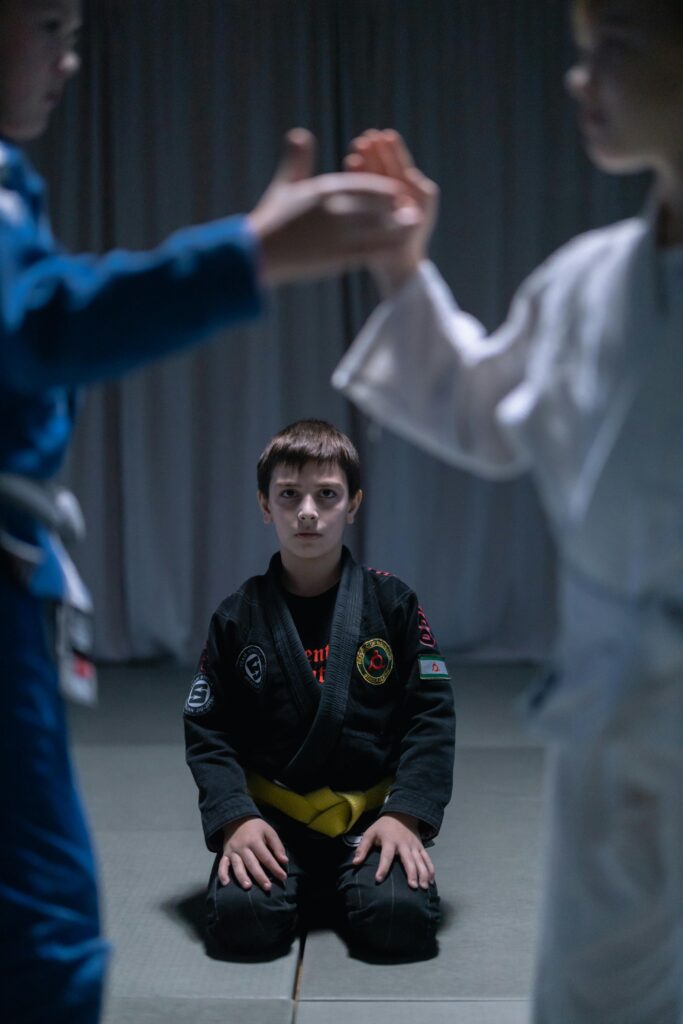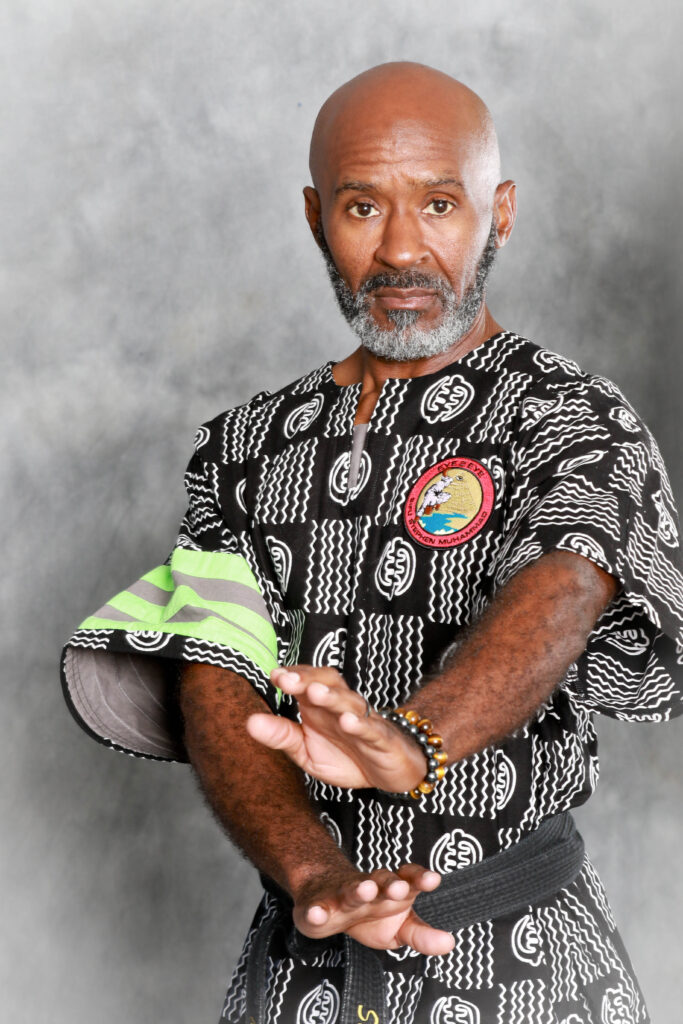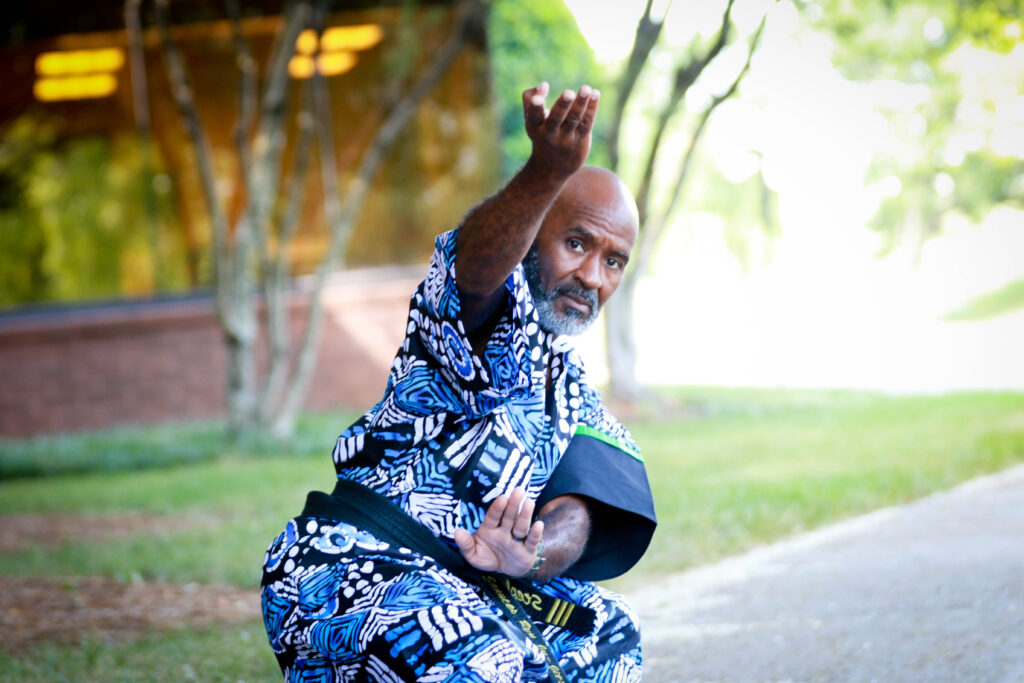If you’re considering a martial art and find yourself stuck between Brazilian Jiu Jitsu vs wrestling, you’re not alone.
Each sport brings something unique to the table, from self-defense techniques to physical and mental benefits. But, picking the right one depends on what you’re looking for in your training and how you plan to use it in the real world.
Let’s break down both disciplines in an easy, conversational way so you can get a real sense of what they’re all about.
Origins and Philosophy of Brazilian Jiu Jitsu and Wrestling
You can learn a lot about these martial arts by looking at where they came from and what they stand for.
The Birth of Brazilian Jiu Jitsu
Brazilian Jiu Jitsu grew out of traditional Japanese Jiu Jitsu. When Jiu Jitsu masters brought their art to Brazil, the techniques were reimagined to focus on leverage, ground control, and submissions.
This evolution was led by the Gracie family and other pioneers, turning BJJ into an art of using technique over strength. If the idea of outsmarting rather than overpowering your opponent sounds appealing, BJJ might just be for you.
Wrestling’s Ancient and Modern Roots
Wrestling is one of the oldest sports, with a history dating back thousands of years. From the Greeks to the Romans and beyond, wrestling was a test of physical strength and endurance.
Today, it’s a staple in high school and college sports, but its roots remain unchanged—grappling, pinning, and physically controlling an opponent to win. Wrestling appeals to those who enjoy a more direct and physical style.
Philosophies of Control and Submission vs. Physical Dominance
The philosophies behind BJJ and wrestling couldn’t be more different. BJJ is about controlling and submitting your opponent with calculated moves and patience.
Wrestling focuses on using power to control and pin, often requiring bursts of intense energy.
If you’re someone who prefers technical finesse over brute force, BJJ may feel like a better fit. But if you love the intensity and physicality of a challenge, wrestling offers exactly that.
Core Techniques in Brazilian Jiu Jitsu and Wrestling
Each discipline has unique techniques, and here’s what you can expect to work on in both.
Ground Fighting and Submission in Brazilian Jiu Jitsu
Brazilian Jiu Jitsu is famous for its ground-fighting techniques. You’ll learn how to control an opponent using positions like the guard, mount, and side control, each with specific moves designed to keep you in control.
Submissions, like the armbar and triangle choke, let you end a fight without needing to throw a single punch. It’s a practical approach, perfect for real-life scenarios where keeping things controlled and non-violent is the goal.
Takedowns and Pins in Wrestling
Wrestling is more about taking your opponent down and keeping them there. Techniques like the single-leg and double-leg takedowns are all about bringing the fight to the ground quickly.
Once there, your goal is to pin your opponent or control them completely. Wrestling teaches you how to dominate with body control and pinning moves, focusing on strength, speed, and balance.
Strategy and Flow: A Unique Approach to Combat
The way BJJ and wrestling use strategy is different too. BJJ flows from one position to the next, encouraging a calmer, more controlled approach.
Wrestling is fast-paced and explosive, relying on quick decision-making. BJJ is for those who appreciate patience, while wrestling rewards fast reflexes and quick thinking.
Training and Conditioning Differences
The way you’ll train in these disciplines varies quite a bit, so here’s what each has in store for you.
Endurance and Stamina in Wrestling
Wrestling training is demanding. It’s intense, with a lot of focus on building cardio, strength, and resilience. Practices involve high-paced drilling, constant movement, and resistance-based exercises that push your body to its limits.
Wrestlers need endurance and stamina since wrestling is all about constant motion and holding your ground.
Flexibility and Precision in Brazilian Jiu Jitsu
Brazilian Jiu Jitsu is less about constant motion and more about controlled, precise movements. Flexibility is key here because it allows you to move efficiently between positions.
Training is focused on drills to develop muscle memory, accuracy, and flexibility rather than sheer power. If you’re after a workout that builds your mind as much as your body, BJJ offers a slower, more methodical path.
Comparing Training Intensity and Injury Risk
Wrestling’s intensity can lead to higher injury risks, especially with the explosive moves and frequent takedowns.
BJJ, being more controlled, generally has fewer high-impact injuries but still poses risks—particularly with joint and ligament strains due to submissions.
Both sports come with risks, but they can be minimized by focusing on technique and practicing safely.
Practical Applications for Self-Defense
If you’re here for self-defense, both Brazilian Jiu Jitsu and wrestling have practical applications in real-life situations.
Brazilian Jiu Jitsu for Self-Defense Situations
BJJ is known for its ability to neutralize larger attackers through technique alone, making it an excellent option for self-defense.
You’ll learn how to defend yourself from the ground, control an opponent’s movements, and end the situation safely with submissions if necessary.
BJJ’s focus on technique over brute force means that it’s suitable for people of all shapes and sizes who want practical self-defense skills.
Wrestling’s Usefulness in Controlling Aggressive Situations
Wrestling is all about physical control and dominance, which can be valuable in self-defense.
You learn how to control someone’s body with takedowns and pins, making it effective in situations where you need to restrain an attacker without escalating things. Wrestling’s strong suit is its power and control, which can help you manage situations quickly.
Which is Better for Real-World Self-Defense?
The best choice depends on the situation. BJJ is ideal for situations that go to the ground and where control is essential.
Wrestling is perfect for standing encounters and provides the strength and technique to take an opponent down and restrain them. It’s worth noting that combining elements of both can be an even more well-rounded approach.
Community and Cultural Impact
One of the most rewarding parts of either martial art is the community you’ll find. Here’s a look at the cultural impact and support system within BJJ and wrestling.
The Community and Brotherhood in Brazilian Jiu Jitsu
BJJ dojos have a reputation for being inclusive and welcoming. There’s a sense of camaraderie on the mat—everyone trains together, helps each other out, and grows as a team.
The BJJ community values respect, mutual growth, and support. This environment creates a supportive space where everyone from beginners to advanced practitioners works toward common goals.
Wrestling’s Competitive and Team-Driven Culture
Wrestling often has a more competitive, team-based atmosphere, especially in high school and college settings. You train hard, push each other, and build strong bonds through shared effort.
The wrestling community is resilient, full of people who value grit, determination, and hard work. Wrestlers support each other through intense training and competition, making it a sport that builds character and strong connections.
Accessibility and Inclusivity in Both Disciplines
Both sports are accessible, with options for all ages and fitness levels.
BJJ often appeals to people looking for self-defense classes in a friendly setting, while wrestling is more widely practiced in schools and organized leagues.
Whether you’re young or old, both BJJ and wrestling can be tailored to fit your needs.
Which Discipline is Right for You?
By now, you’re probably leaning one way or the other. Here are a few final things to consider.
Considerations for Physical and Mental Fitness Goals
If fitness is your primary goal, both sports offer incredible benefits. Wrestling will push your endurance, strength, and resilience.
BJJ will improve your flexibility, coordination, and mental focus. If you like a slower, mentally engaging workout, BJJ might be for you. If you prefer intense, full-body workouts, wrestling has what you need.
Age, Physical Ability, and Practical Application
Both sports offer flexibility for different ages and physical abilities. BJJ can be more forgiving for older practitioners due to its less explosive movements.
Wrestling can be intense but is also adaptable, especially if you’re working with experienced coaches. Consider your fitness level and long-term goals when making your choice.
Finding the Right Training Environment
Look for a gym or dojo with certified instructors, a welcoming community, and class schedules that work for you. It’s important to find a place where you feel comfortable and motivated, whether you’re learning self-defense or aiming for personal growth.
Get Hands-On with BJJ and Wrestling at Eye2Eye Combat
Both Brazilian Jiu Jitsu and wrestling have so much to offer, whether it’s the strategic, leverage-based approach of BJJ or the high-energy control in wrestling.
Each provides an incredible way to build strength, confidence, and practical skills for real-life situations. At Eye2Eye Combat, we offer a space where you can experience the best of both worlds.
Discover for yourself how these disciplines can empower you—whether you’re looking for self-defense, fitness, or a new challenge. Take the next step and experience the difference training at Eye2Eye Combat can make.
FAQs
Which is more effective, BJJ or wrestling?
Each has its strengths! BJJ is great if you want a technical, submission-focused style that works well in self-defense. Wrestling shines in control and takedowns, with strong, fast movements that can dominate in close quarters. Choosing between them depends on your goals: BJJ’s more patient, strategic approach vs. wrestling’s intense, power-driven style. Both are highly effective in different ways.
Can a BJJ fighter beat a wrestler?
Yes, a BJJ fighter can definitely beat a wrestler, but it comes down to skill level, experience, and adaptability. BJJ fighters excel at ground control and submissions, which can give them an edge on the mat. However, wrestlers have excellent takedown and control skills. In a match, it depends on who plays to their strengths and how well they can adjust to the other’s style.
Does BJJ carry over to wrestling?
Absolutely, BJJ and wrestling share some fundamentals that translate well between them. BJJ’s focus on leverage, body control, and positioning can give a wrestler more tools, especially on the ground. It’s not a direct crossover, but practicing BJJ can help with defensive skills, balance, and transitioning in wrestling, making it a great complementary discipline for wrestlers.
Should you learn wrestling or BJJ first?
There’s no right answer, but starting with one depends on your interests and goals. If you enjoy intense, strength-focused training, wrestling might be a great first step. BJJ, on the other hand, focuses more on technique and patience, ideal if you prefer a slower-paced, strategic approach. Either way, you’ll develop strong grappling fundamentals that carry over between the two.
Does knowing Jiu Jitsu help with wrestling?
Yes, Jiu Jitsu can definitely help with wrestling! While wrestling is about takedowns and control, Jiu Jitsu builds excellent ground awareness, balance, and submission skills. Knowing Jiu Jitsu helps wrestlers stay calm on the mat and gives them an edge in ground control and positioning. It’s a good way to become a well-rounded grappler if you’re looking to excel in both areas.
What age is best for BJJ?
BJJ is great for all ages! Kids as young as five or six can start learning basic movements and discipline, while teens and adults enjoy the sport for fitness, self-defense, and confidence. For kids, BJJ builds respect and body awareness; for adults, it’s a great way to stay fit and sharp. No matter your age, BJJ offers benefits that grow with you.





